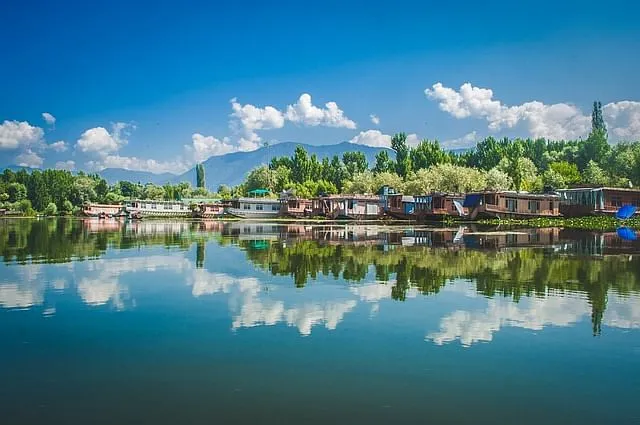The world is witnessing the rapid changes when it comes to the environmental conditions across the globe. The ‘extremes’ that we were witnessing manifest the dreadful scenario we have plunged ourselves in .No region or the part of it has been immune to these changing signatures of the environment we live in. The costs of new age ‘industrial and technological’ advancements have led to the widespread deterioration in the life-supporting systems we live in. The biosphere or the ecosystem ‘spaces’ that sustain our needs have been turned into the web of ‘cascading environmental threats’ confronting our geographies. In the same league this year’s World Environment Day theme ‘Ecosystem Restoration’ impresses upon the restoration of the ecosystems that have witnessed the degradation and are on the verge of further destruction. This theme focuses on revitalizing or reviving our ecosystems and assisting in managing and maintaining the safe natural resources. Hosted by Pakistan this year, the event will see the formal launch of ‘UN Decade on Ecosystem Restoration 2021-2030’.This is the first time Pakistan will be hosting World Environment Day. On this occasion, Pakistan will be making some significant pronouncements related to initiatives that it has taken to mitigate the effects of climate change, including the 10 Billion Trees Tsunami Programme, Clean Green Pakistan, the Electric Vehicle Policy, National Parks, and Green jobs.
Restoration ecology is “the scientific study of repairing disturbed ecosystems through human intervention”. Ecological restoration intends to recreate and restore ‘disturbed’ ecosystem. Restoration activities aim to recreate and reimagine the pre-disturbance sage of ecosystem or to create a new ecosystem where it had not previously occurred. This sets the stage for resetting our relations and interactions with nature
Environmental Issues in Kashmir
Over the period of time Kashmir being the template of witnessing the equilibrium in the man-environment interactions, has drastically seen a decline in the same. The vulnerability in terms of the hydro-meteorological and anthropogenic induced have changed the state of environment in Kashmir .The administrative apathy coupled with parochial sense of environmental conscious citizenry have led to the harming of environment in Kashmir. There has to be substantial and comprehensive planning and awareness disseminated in the public sphere and the services provided by the ecosystems should be there in every possible way. In some fronts the advocacy for the general environmental issues is commendable but much more needs to be done in order to have the balanced and stable ecosystem. Many of the precious water sources have been junked up because of the callous and the irresponsible attitude of people towards the environment .The scenes of waste disposal and the littered roads all the way to the mainstream ‘spaces’ depicts the worsening scenes of environment in Kashmir. In order to preserve and maintain the sanctity and positioning of environment vis-à-vis the societal development, this tragic behaviour needs to be amended and reworked.
Dasgupta Review and Economics of Ecosystem Services.
The landmark Dasgupta Review on the Economics of Biodiversity which was made public start of this year basically deals with the economics of ecosystem services and how there is need to fundamentally review the measurement of environmental services .It is one of the pioneering and momentous document when it comes to the reviewing of the demands we have stressed on nature far exceed its capacity to cater to them. This review considers nature being a “blind spot” in economics. We can no longer afford for it to be absent from accounting systems that dictate national finances, or ignored by economic decision makers. The review highlights that “we would need 1.6 Earths to maintain humanity’s current way of life” as the last few decades of human prosperity have taken a “distressing” ecological toll across the world. Dasgupta contests the fact of GDP being a hollow measuring rod of economic prosperity as “based on a faulty application of economics”. “My overarching aim is the reconstruction of economics to include Nature as an ingredient,” says Dasgupta, who is currently the Frank Ramsey Emeritus Professor of Economics at Cambridge and Fellow of St John’s College. He further adds that “Truly sustainable economic growth and development means recognising that our long-term prosperity relies on rebalancing our demand of Nature’s goods and services with its capacity to supply them”. Dasgupta being the architect and champion of putting nature into the realm of economic vocabulary was among the Cambridge academics to help the United Nations launch their updated ‘Ecosystems Accounting’ framework last year. This review has been hailed all over the world on putting the accounting services in the ‘state of environment’ around the world. Sir David Attenborough, celebrated Cambridge alumnus and figurehead of the conservation movement, hailed the publication, defining it in the Review’s foreword as “the compass that we urgently need”.
The Rhetoric and the Action
Every year the designated days related to the environment are being celebrated with the highfalutin semantics of the governmental programmes and the documents being unpacked which unfortunately are just confined to that day only. We are at this critical juncture of the anthropocenic era when we cannot err further on the environmental distress that is being observed all around the world. It is time to act and value the ecosystem services we consume for having the sustainable future.
The Way Forward-Being a #GenerationRestoration
The damages and the disturbances being carried out in the different settings of the natural environment need to be reclaimed and restored for the well thriving and the liveability as well. The order and the feedback system of the environment needs to be treasured and the limits of the encroaching the basic ecosystem ‘spaces’ need to be preserved and protected in order to have the blossoming world in which the needs and the demands are to be catered prudently.






